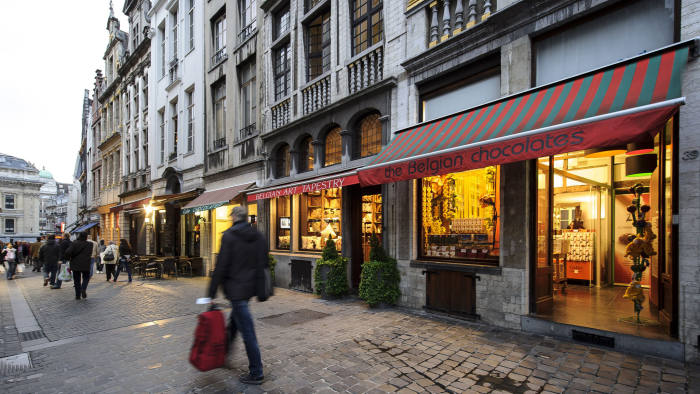Europe must find its will to power

The EU does not have many military divisions either, but it has something nearly as awesome. Authority over the world’s largest market and one of its biggest central banks gives the bloc a commercial power matching that of the US and unrivalled by anyone else. Yet Europe is either unaware of its own strength or fearful of wielding it.
Europeans’ basic instinct is still to treat trade and finance as means to mercantile ends — market access and predictable conditions for its businesses, and the jobs and incomes that are expected to follow. The EU is disinclined to use its economic clout for self-consciously political goals, which would require a willingness to put at risk commercial opportunities to serve a greater priority.
This shopkeeper mentality is linked to Europe’s aversion to looking a changed America in the eye. Many European leaders live in the hope that things will normalise when US president Donald Trump leaves office, and are wary of burning bridges by being too confrontational. But it is a mistake to treat Trumpism as a temporary aberration. Even if Americans change their president in 2020, what has happened once can happen again. The foundations of the global rules-based order have been irreversibly weakened — by the US losing interest in it and by China trying to subject it to its own dominance.
From accepting that it is “Europe alone”, EU leaders must move to acting for “Europe first” — not in the Trumpist sense of defeating others in zero-sum games, but in fighting for a system in which all who share the bloc’s values can thrive. That means making international economic policy with the explicit goal of shaping the global rules in Europe’s image.
It is in the sphere of trade that the EU comes closest to realising — in both senses of the word — its superpower potential. It has moved towards imposing its own environmental, labour and investment-dispute rules in trade agreements. It knows its regulatory preferences often spread through the “Brussels effect”, where other countries track the EU to spare their companies the cost of following more than one set of rules.
But Europe has more to gain by shifting further from a mostly mercantile trade policy towards a geostrategic one, which seeks to increase the European imprint on how the world is governed. For example, it could align trade policy much more closely with climate policy. The EU should not shy away from imposing carbon border taxes on imports from countries without domestic carbon levies as extensive as Europe’s own.
Trade policy should also reinforce the Brussels effect, extending further and more formally the writ of the EU’s regulatory authority. Talks on the bloc’s future relationship with the UK, once Brexit happens, offer a great opportunity. In her Chequers proposal, prime minister Theresa May came close to aligning the UK automatically and dynamically with EU trade and regulatory policy in return for frictionless trade in goods. The position of the opposition Labour party comes even closer.
Such a model would not just cement Brussels’ authority on goods throughout the continent; it would also set up a useful structure for the wider neighbourhood. Once a frictionless market for goods was established for Britain, Turkey, north Africa and the post-Soviet fringe could gradually be brought into it, with EU rulemaking providing stability, prosperity and a staging post for those wanting closer relations in the future.
Beyond trade, public investment can buy more geopolitical advantage than increased defence spending. Beijing’s extraordinary power of attraction among the eastern and southern EU states that have signed up to its Belt and Road project is less a reflection of how much China offers — money for greenfield projects falls far short of the hype — than of how Europe’s own investment collapsed after the financial crisis. Several candidates to replace Jean-Claude Juncker as European Commission president have called for “Marshall plan” levels of aid in neighbourhood countries, too. A dramatic increase in geopolitically-minded investment spending should be a priority in the next seven-year EU budget.
Finally, the collapse of the Iran nuclear deal has illustrated Europe’s continued dependence on the dollar-denominated financial system. To achieve geopolitical autonomy, Europe needs to establish the euro as a reserve currency with a fully self-contained global payment system. To this end, the European Central Bank — which is legally mandated to support the EU’s “general economic policies” — can be instructed by EU leaders to issue long-term safe euro assets.
The US remains the unmatched military superpower. But even it achieves as much through economic as through military pressure. Until now its pressure on Iran has been financial — directly through sanctions and indirectly by threats to other countries that do not toe Washington’s line.
A similar power is Europe’s for the taking. What it must find is the will to use it.
MARTIN SANDBU
The writer is the FT’s European economics commentator
Fiți la curent cu ultimele noutăți. Urmărește TIMPUL pe Google News și Telegram!

